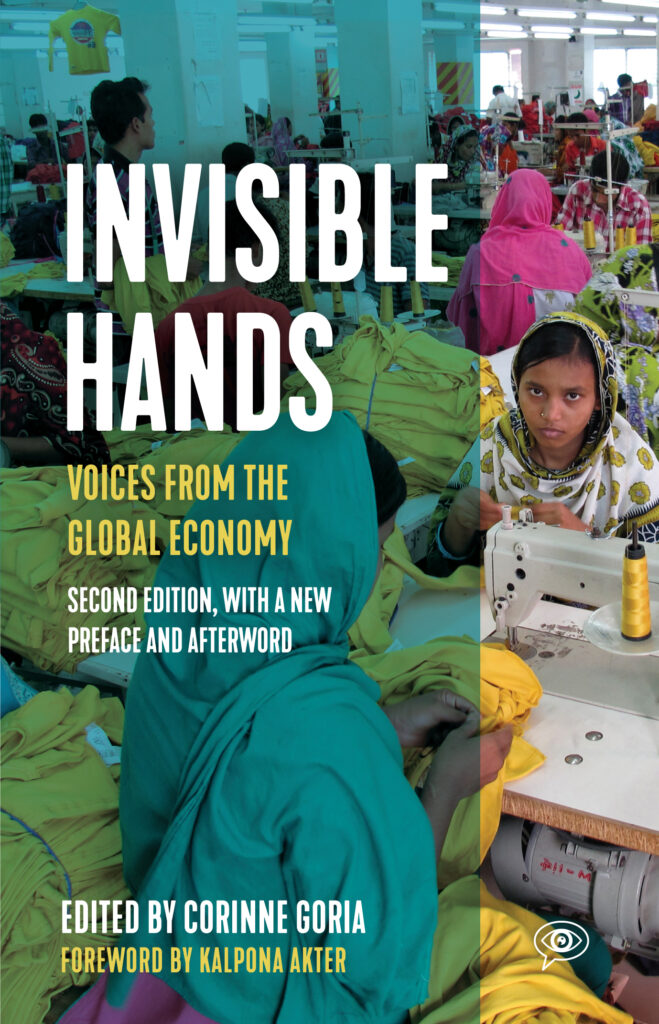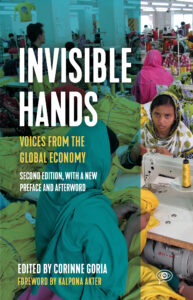The oral histories in Invisible Hands detail the human rights abuses occurring behind the scenes of the global economy. The narrators—including phone manufacturers in China, copper miners in Zambia, garment workers in Bangladesh, and farmers around the world—reveal the secret history of the things we buy, including lives and communities devastated by low wages, environmental degradation, and political repression. These lesson plans provide students a point of entry for understanding economic systems from a human perspective, creating an opening for critical exploration of the ethical, moral, and legal issues connected to these systems. Students will explore the following questions:
- What are human rights? What is a global community, and how can it help to enforce human rights?
- Is it possible to pay workers fair wages and also keep the cost of products affordable?
- What responsibility, if any, do we have as consumers to ensure that the workers who manufacture our goods are treated and compensated fairly?
Grades: Flexible and adaptable for middle school and high school.
Time Needed: Entire curriculum covers approximately 3 weeks of class time. However, each lesson can be taught separately.
Objectives:
- Students will explore global workers’ rights and labor unions through reading and analyzing oral histories and labor song lyrics.
- Students will use oral history, photography, and various communication skills to investigate resource extraction and its connection to society, the economy, and the environment.
- Students will analyze the health violations of conventional farming practices, and compose their own poems in response to agricultural labor violations.
Download Free Curriculum
* Required fields
Goria dramatically acknowledges the legion of overlooked workers who ‘produce the things we use every day,’ expressed through the carefully chosen words of crusaders who share each other’s individual hopes and hardships. Powerful and revealing.
Kirkus Reviews
About the Oral Histories
The men and women in this oral history collection reveal the human rights abuses occurring behind the scenes of the global economy. These narrators—including phone manufacturers in China, copper miners in Zambia, garment workers in Bangladesh, and farmers around the world—reveal the secret history of the things we buy, including lives and communities devastated by low wages, environmental degradation, and political repression.
In this updated edition Goria revisits narrators and their struggles, which are shaping the world. Sweeping in scope and rich in detail, these stories portray the interconnectivity of people struggling to support themselves and their families. The oral histories in Invisible Hands provide a point of entry for understanding the global economy from a human perspective, creating an opening for critical exploration of the ethical, moral, and legal issues connected to the system.




